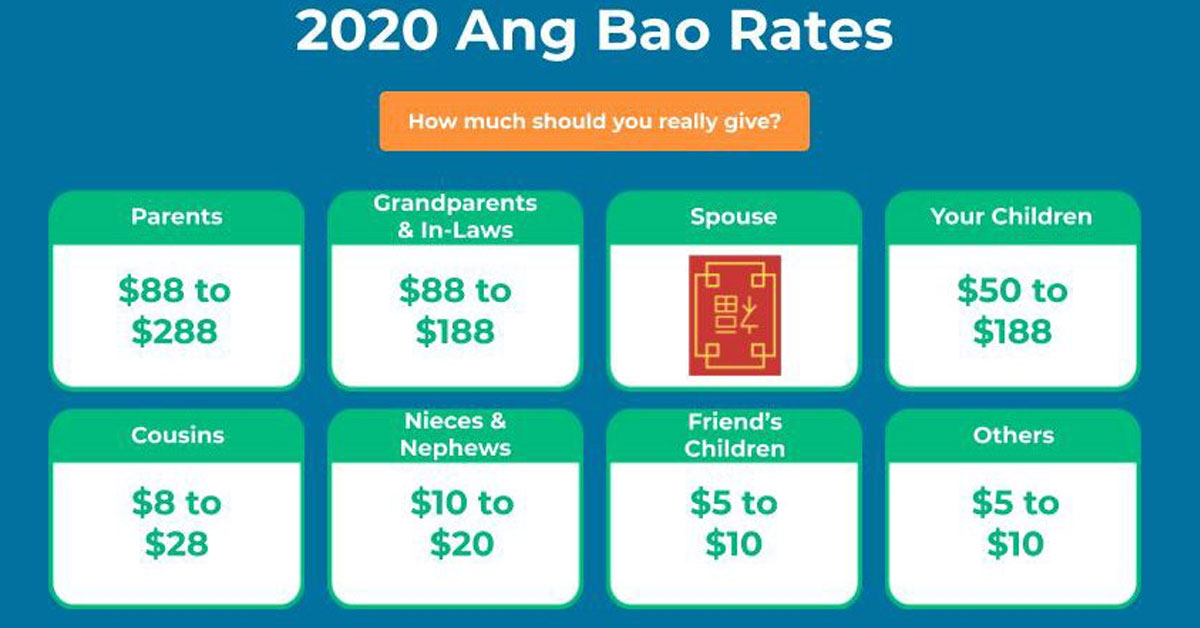There’s this unspoken understanding of roughly how much you should receive/give on Chinese New Year, and everyone’s trying to make sense of the so-called CNY Ang Bao Rates 2020.
For example, we have this understanding that relatives who are closer to us tend to give a little bit more money than distant relatives.
But no one actually says it out loud, you kinda just know from all your years growing up and celebrating Chinese New Year.
But for those who are transitioning from receiving ang baos to giving ang baos, exactly how much you should give might not be as clear.
Which is why a kind soul has come up with the ‘Official’ ang bao rates for Chinese New Year 2020.
Or maybe this person just wanted everyone to know how much they should be getting on CNY.

Someone Came Up With The ‘Official’ CNY Ang Bao Rates 2020 Based On A Regular Singaporean’s Income
I have to admit that I’m a little sceptical about these rates. For one, everyone’s income is different, right?
What is a Singaporean income anyway? Is it $3,000? Or $5,000? Or are you a Crazy Rich Asian who’s earning $1,000,000 a month?
For those who are unaware, red packets or ang baos are exchanged during Chinese New Year as a symbol of good luck and happiness between family and relatives.
So without further ado, let me present you the rates:

Unsurprisingly, parents receive the bulk of it partially as a sign of respect. Plus, they kinda brought you up.
Grandparents come next on the list of how much to give and for some, spouses. However, not everyone gives their spouse money anymore.
This is followed by children, cousins, nieces and nephews and finally your friend’s children.
Who Gives The Ang Bao?
It is the married couples and singles who are in their mid-late 30s that have to give out ang baos.
However, if you have just gotten married, you don’t actually have to give out ang baos for the first year of marriage.
You will only need to give out ang baos on your second year of marriage, kind of like an “I just got married” pass.
Just remember never to give red packets with a number that ends or starts with 4. That’ a no go because in Chinese and some dialects, the number 4 sounds like “death” (死, si), so you’re gonna want to avoid that.
When in doubt, just stick to the lucky number 8.
This year, Chinese New Year begins on Saturday, 25 January and ends on Saturday, 8 February.
